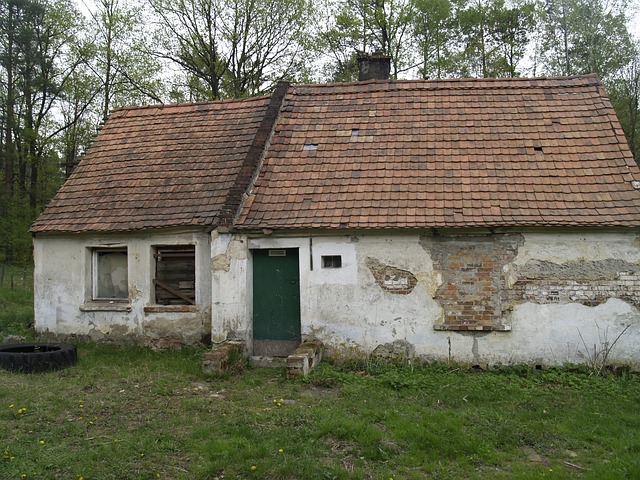When planning your relocation to Dublin, understanding the factors influencing moving costs is essential. Distance, property size, access, and peak seasons impact pricing. Book early, compare quotes from reputable companies, and consider DIY options for lighter tasks to save costs. Packing and material expenses vary based on home size, item type, and location, with new homes in remote areas incurring long-distance travel fees. Labour expenses significantly affect total relocation fees, peaking during busy seasons. Top-rated movers offer optional services like packing, disassembly/reassembly, and storage, with varying costs. Permits and administrative fees, often overlooked, can add up based on property type and location. Creating a detailed budget accounting for unexpected expenses ensures a smoother financial transition during your move to Dublin, answering the query: how much does it cost to move house in Dublin?
Moving to Dublin? Understanding the associated costs is crucial. This guide breaks down the expense of relocating within the city, focusing on top-rated solutions. From packing materials and labour to permits and administrative fees, we explore every factor influencing your budget. Learn about additional services and their pricing, as well as unexpected expenses. By the end, you’ll have a clear understanding of how much it truly costs to move house in Dublin.
- Understanding the Cost Factors for Moving in Dublin
- Calculating Packing and Material Expenses
- Labour Costs: Hiring Professional Movers
- Additional Services and Their Pricing
- Permits and Administrative Fees
- Unexpected Expenses to Consider
Understanding the Cost Factors for Moving in Dublin

When considering how much does it cost to move house in Dublin, understanding the various factors that influence pricing is key. These can include distance traveled, size and weight of belongings, number of rooms, access to your property, and whether you require specialized services like packing or furniture disassembly/reassembly. Additionally, seasonal fluctuations, peak moving times, and availability of movers can all impact costs.
In Dublin, where real estate is dense and traffic congestion is common, local movers often charge higher rates during peak seasons. Booking well in advance, comparing multiple quotes from reputable companies, and considering DIY options for lighter tasks can help mitigate expenses. Remember that while cost should be a primary concern, choosing the right mover based on their experience, insurance coverage, and customer reviews is equally important to ensure a stress-free relocation.
Calculating Packing and Material Expenses

When planning a house move in Dublin, understanding packing and material costs is essential for budgeting. These expenses can vary significantly depending on several factors. Firstly, consider the size of your home; larger properties will require more packing materials and potentially a larger moving truck, increasing overall costs. The type and quantity of items you plan to move also play a part. Valuables or fragile items might necessitate specialized packaging, adding to the expense.
Additionally, location is key. If your new home is in a remote area, additional charges for long-distance travel may apply. Packing supplies like boxes, tape, and bubble wrap can be sourced from various providers, offering different quality levels at varying price points. Top-rated moving companies often include these materials in their quoted prices, making it easier to compare costs. In terms of how much it could cost, expect to spend anywhere from €500 to €2000 or more for packing and material expenses alone when relocating within Dublin.
Labour Costs: Hiring Professional Movers

Hiring professional movers is an essential aspect of a smooth house moving experience in Dublin, and the costs can vary depending on several factors. Labour expenses are a significant component of total relocation fees. In Dublin, where there’s high demand for moving services, labour rates tend to be competitive, reflecting both the expertise and physical effort required.
When considering how much does it cost to move house in Dublin, potential homeowners should factor in the time needed for the move, the distance traveled, and the size of the property. Larger homes or moves that involve extensive packing and disassembly of furniture will naturally incur higher labour costs. Moreover, peak moving seasons and times of high demand can increase these rates. Therefore, it’s beneficial to secure quotes from multiple professional movers to ensure you get a fair price for your specific needs.
Additional Services and Their Pricing

When considering how much does it cost to move house in Dublin, it’s important to remember that top-rated moving companies often offer a range of additional services tailored to meet specific needs. These can include packing materials and supplies, disassembly and reassembly of furniture, safe transport for fragile items, and even storage options. The pricing for these extra services varies widely depending on the complexity and extent of the work required.
For instance, professional packing services can range from €50 to €150 or more per hour, while disassembly and reassembly fees typically start at around €30 per item. Safe transport for fragile items like glassware or antique furniture usually adds a premium, with rates often exceeding €20 per item. Storage options are also available, with monthly costs varying from €50 to €200 or more, based on the size and duration of storage required. It’s advisable to request detailed quotes from several moving companies to get an accurate picture of how much does it cost to move house in Dublin, inclusive of any additional services needed.
Permits and Administrative Fees

When planning a move within Dublin, it’s crucial to factor in various permits and administrative fees that can significantly impact your overall moving costs. These expenses are often overlooked but can vary widely depending on factors like property type, location, and the services you require. For instance, obtaining a permit for moving large furniture or heavy items through narrow streets might incur additional charges.
The cost of these permits ranges from a few euros to potentially hundreds, depending on the complexity. Additionally, there are administrative fees associated with updating your address with various government bodies, utility companies, and financial institutions. These costs can accumulate, so it’s essential to request detailed quotes from movers and understand the permit requirements well in advance of your move date to ensure a smooth transition without unexpected financial surprises during your relocation in Dublin.
Unexpected Expenses to Consider

When planning your move to Dublin, it’s crucial to prepare for unexpected expenses that can significantly impact your budget. While many factors influence the cost of moving house in Dublin, such as distance, size of the property, and the time required, there are additional costs that often catch people off guard.
These unexpected expenses include various fees like packing materials, which can add up quickly, especially if you’re employing professional movers. Other costs may arise from utilities transfer, administrative fees for changing addresses, and potential repairs or cleaning required by the new property. It’s essential to create a comprehensive budget that accounts for these variables to avoid financial surprises during your move to Dublin.
Moving house in Dublin can be a complex financial undertaking, with numerous variable costs. Understanding these factors—from packing materials to labour and additional services—is key to budgeting effectively. According to industry standards, the average move within Dublin typically ranges from €500 to €2000, depending on the size of your property and distance traveled. However, for top-rated solutions that ensure a seamless transition, budget upwards of €1000, factoring in potential hidden expenses. By carefully considering each aspect discussed in this article, you can navigate the process with confidence and avoid unnecessary financial surprises when moving house in Dublin.
